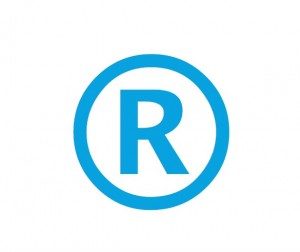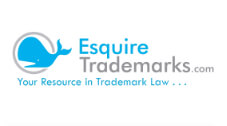Why Trademark Searches Are Not 100% Accurate
Trademark searches cannot predict with 100% accuracy whether your trademark application will be blocked by a trademark registration, or prior filed application. In fact, the only time a trademark search is 100% is when the exact trademark mark is found for the exact same services. If this happens, you know with 100% certainty that your trademark application will be denied by the Trademark Office.
The Trademark Office can reject your application using similar marks – marks that have similar components – similar in sight, similar in sound, similar in meaning. This decision to reject your trademark application is a subjective decision made by the Trademark Office Examining Attorney. As such, it is impossible to predict with 100% accuracy how a particular Examining Attorney will rule on the application.

How Our Trademark Searches Work
For word marks, we perform an exact search. We also search for the dominant portion of the mark. Then, we use past trademark cases to replicate / simulate a trademark search. We look for past examples of how the trademark office searched your mark. Each case is different and presents different search strategies. For your trademark, we identify what searches we performed. We then advise you of the probability of getting a rejection based on any prior marks we found. When there is no exact match, we point out similar marks that can be used to reject your trademark application. After discussing the prior marks, we provide you with an opinion about the chances of the mark being allowed or rejected. This opinion is based on 20 years experience in trademark law.
What is the Test for Used Searching Trademarks?
“Likelihood of confusion” is the test for determining whether an existing trademark can block a trademark application. The Likelihood of Confusion test evaluates 11+ factors. In most cases, the analysis involves two main considerations: (1) the similarity of the marks, and (2) the relatedness of the goods/services. These considerations become a subjective judgment call by the Trademark Examining Attorney at the USPTO. Because this is a legal issue, trademark attorneys can use evidence and legal argument to advocate either side of the likelihood of confusion position.
Similar marks are marks that have similar components. Similar trademarks can look the same, even with spelling variations. Trademarks could be found similar when they look different, but sound alike. Finally, marks can be confusingly similar when they have the same meaning or commercial impression.
At one extreme, the Examining Attorney can reject your application using any existing applications/registrations that are (1) similar to your mark (2) have related goods/services. It would then be a legal issue where you, the applicant, bear the burden of showing confusion is not likely. This is done through your attorney using evidence and legal argument.
At the other extreme, the Examining Attorney may allow your application to register, finding that confusion with the other existing marks is not likely. The search we performed provides some guidance, but it does not rule out risk that the application will be rejected in view of a prior application or registration.
A Word About Common Law Trademark Rights:
Common law trademark rights are unregistered trademark rights that can be asserted against you to oppose your trademark application. This is why we advise you to google search for your trademark for unregistered trademark use. Even if your trademark is registered, a prior user can assert common law rights to cancel your trademark registration. Further, with or without a trademark registration, you can be sued by a trademark owner who has prior common law trademark rights. Only after 5 years of registration, you may apply to have your trademark registration deemed incontestable. (Meaning no-one can challenge your rights to the trademark)
This Is Why Trademark Searches Are Not Guaranteed:
For these reasons, this search should not be understood as a clearance for you to use the trademark. We do not guarantee that your mark will be allowed by the trademark office. Nor do we guarantee that use of the mark will be free from infringement of another’s registered or unregistered mark.
As your attorney, we attempt to (1) identify the risks and chances of your application being blocked and (2) put you on a path to securing incontestable ownership rights in your mark.
If your mark gets rejected, you may request to hire us to appeal the rejection by introducing evidence, legal authority, and argument. If your mark gets opposed, you may request to hire us to defend the opposition. If you are accused of infringement, you may request to hire us to defend your interests.
EsquireTrademarks.com – Online Trademark Attorneys – What We Do:
- Our trademark attorney, prepares and files trademark applications for clients throughout the United States and abroad.
- We prosecute and defend trademark infringement and unfair competition actions in the Federal Courts throughout the United States and abroad.
- We also prosecute trademark office actions and appeals before the United States Trademark Office.
- We handle internet based trademark disputes and trademark, DMCA, and copyright takedowns.
- We draw on our experience as trademark litigators to guide you through the trademark process.
- We support businesses, law firms, and individuals by providing top notch legal services in intellectual property matters.
